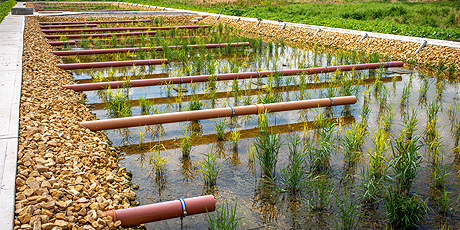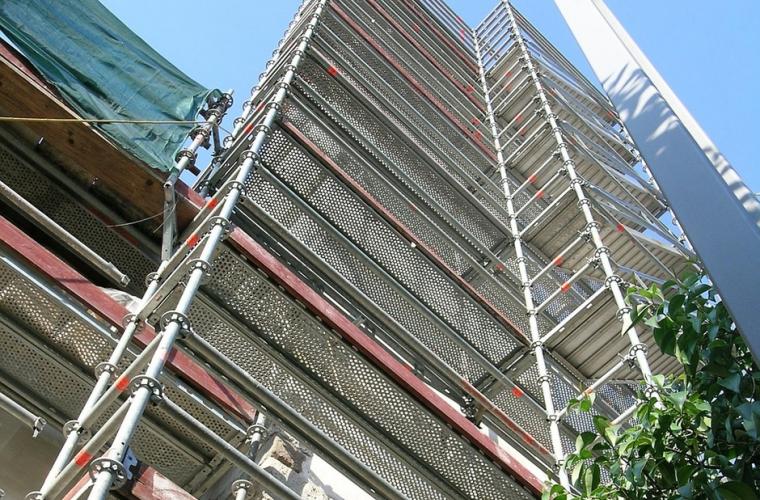New developments and the environment will benefit from a reduced risk of flooding and pollution thanks to a new approach to drainage.
The recommendation to make sustainable drainage systems mandatory to new developments in England is the result of the Government’s review. This will reduce the risk of surface water flooding, pollution and help alleviate the pressures on our traditional drainage and sewerage systems.
New developments can inadvertently add to surface and sewer flood risk by covering permeable surfaces like grassland and soil that would otherwise assist in dealing with heavy rainfall.

The new approach to drainage will ensure sustainable drainage systems are designed to reduce the impact of rainfall on new developments by using features such as soakaways, grassed areas, permeable surfaces and wetlands. This reduces the overall amount of water that ends up in the sewers and storm overflow discharges. Certain features such as tanks and water butts also allow for water reuse and reduce pressures on water resources.
Following today’s publication of the review, regulations and processes for the creation of sustainable drainage systems at new developments will now be devised, through the implementation of Schedule 3 to the Flood and Water Management Act 2010. Implementation of the new approach is expected during 2024.
Environment Minister Rebecca Pow said: “Our traditional drainage systems are under increasing pressure from the effects of climate change, urbanisation and a growing population.
“The benefits of sustainable drainage systems are many – from mitigating flood risk by catching and storing surplus water and reducing storm overflow discharges, to enhancing local nature in the heart of our developments and helping with harvesting valuable rain water.
“Taking a more consistent and effective approach to sustainable drainage systems will improve the resilience of our drainage and sewer infrastructure, while reaping these broader benefits.”
Schedule 3 provides a framework for the approval and adoption of drainage systems, a sustainable drainage system approving body within unitary and county councils, and national standards on the design, construction, operation, and maintenance of sustainable drainage systems for the lifetime of the development. It also makes the right to connect surface water runoff to public sewers conditional upon the drainage system being approved before any construction work can start.
Government will now give consideration to how Schedule 3 will be implemented, subject to final decisions on scope, threshold and process, while also being mindful of the cumulative impact of new regulatory burdens on the development sector.
This will include a public consultation later this year, which will collect views on the impact assessment, national standards and statutory instruments.
Environmental Audit Committee Chairman, Rt Hon Philip Dunne MP, said: “Our drains and sewers are spilling under significant pressure, exacerbated by new housing developments having the automatic right to connect to the sewerage system. It is absolutely right that the Government leaves no stone unturned to address the major and complex challenge of easing pressure on the system.
“Its intent for new developments to include sustainable drainage systems is absolutely the right direction, and was a key recommendation in our report that considered water quality. Developers must not simply have the right to connect to an overloaded sewerage system and not contribute to improvements.”
Philip Box, Public Affairs & Policy Adviser at UK Green Building Council said: “As one of more than 40 experts who wrote to the Prime Minister to recommend this move, we welcome the Government’s commitment to normalising drainage principles that protect both natural and built environments.
“Well-designed sustainable drainage is widely recognised as the best way to manage flooding risks and pollution overflows – both serious challenges to communities that will worsen as our climate changes.
“With a wide range of potential benefits ranging from biodiversity gain to improved air quality, we look forward to further details arising from the Government’s consultation.”




















